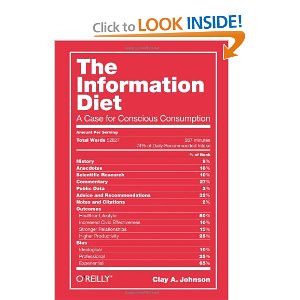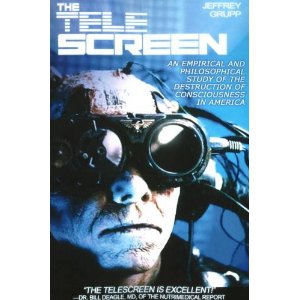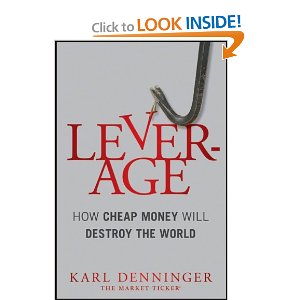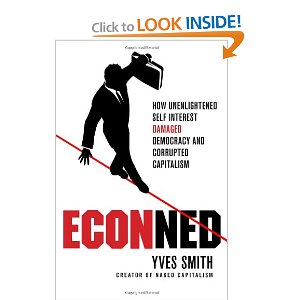
Richard Cottrell
![]() Startling, Offers a Wealth of New Information, February 19, 2012
Startling, Offers a Wealth of New Information, February 19, 2012
EDIT of 6 May 2012 to acknowledge fixed made by publisher for new edition after review, change title, and increase to five stars.
I was given this book as a gift. I do not normally seek-out conspiracy literature, but in the aftermath of 9/11 and all I have learned about that (search for < 9/11 books dvd source=phibetaiota >, I am now shifting from my long held view that given a choice between incompetence and conspiracy, one should go with incompetence every time. This book brings me closer to a 50-50 split, but I am still on the 70-30 side giving incompetence the edge.
The best thing I can say about this book is that while there are others addressing Gladio (the Italian secret unit), this may be the first book that really strings everything together, adds, connects, spreculates, in a more thorough way going beyond Italy to include the rest of Europe and to my surprise, Sweden, than the few prior books. This book is also the most current, to include the Libya take-down and to warn that Turkey is next. The book does not address Syria.
NATO's Secret Armies: Operation GLADIO and Terrorism in Western Europe (Contemporary Security Studies)
Secret Organisation Gladio. Western Union Official Clandestine Killer Organisation (1,2,3,4,5)
Puppetmasters: The Political Use of Terrorism in Italy
Perhaps the most substantive point in favor of the book's value is the detailed and documented manner in which it outlines how Italy spawned the most active secret campaign because it is the one place where the Catholic Church and the Mafia have their homes, and can come together with NATO, big business, the neo-Nazi extreme right, and the intelligence and security services whose budget inevitably benefit from false flag attacks in the absence of real threats.
As much as the book troubles me with detailed documented examples of a long series of false flag attacks including assassination of leaders in Sweden and elsewhere (and at one time targeting Charles DeGaul), I am inclined to think that the author makes an unwarranted assumption that the “legitimate” stay-behind networks created after World War II morphed into a “killer / false flag” network over time everywhere. While this is absolutely proven beyond a doubt for Italy, it is not proven for the rest of Europe.
Because the author relied on second-hand quotes and did not read the original, this book has a poor misrepresentation of the findings of my friend Cees Wiebes' book, Intelligence and the War in Bosnia: 1992-1995 (Studies in Intelligence History). The focus of Cee's book was on the inadequacy of convention intelligence services with respect to peacekeeping intelligence; and that the rest of the mess was a mix of sheer incompetence within the UN, big power politics, and bureaucratic in-fighting in Washington, D.C. That sounds righter to me and is consistent with my own review of the English-language version that I link to here.
I am constantly astonished as I read this book, finding nuggets of documented information that I had no idea were out there. I think frequently while reading this book that it would be truly wonderful to have the ability to ingest this and many other books like it into a professional intelligence evaluation facility, create the maps that connects the dots — people, places, organizations, dates, and such — and get to the bottom of so many crimes against humanity that have been carried out by order of Western powers — certainly co-equal to the crimes against humanity from the “lesser” powers in Rwanda and Burundi.
The assassination of John F. Kennedy is of special interest to me, see my summary reviews of Someone Would Have Talked, JFK and the Unspeakable: Why He Died and Why It Matters, and A Farewell to Justice: Jim Garrison, JFK's Assassination, and the Case That Should Have Changed History. This book and this author opens my eyes to the role of the former Chairman of the Joint Chiefs of Staff, General Lyman Lemnitzer, fired by Kennedy and sent to NATO where he evidently spun a very wide weave.
The author provides details on the Russians using a PSYOP at the end of WWII, creating the myth of the Hitler redoubt, with the specific intent of distracting General Eisenhower and gaining time to take Berlin — their plan worked.
I read with amusement the author's assessment of the National War College as the place where we park right-wing nutcases/neocons, and knowing some of them myself, cannot disagree–that is however a disservice to the 90% of NDU that is solidly in the middle.
The author is provocative as he weaves his documented tale about the degree to which all left of center groups were penetrated in the aftermath of WWII, and I see how easily the intelligence and security services might have found it to manipulate groups into doing violence — or into taking the blame for false flag violence. On the basis of this book as well as others, I speculate that at least half the “threat” against which the USA has devoted considerable time, treasure, and trust, has been FALSE — self-made.
The death of most significant Swedes standing up for Palestine gets my attention.
The “coincidence” of police training exercises in both London and Madrid, each closely associated with the actual train bombing that takes place in and around the exercise area, is profoundly disturbing — we now know that Dick Cheney scheduled the counter-terrorism exercise MONTHS before “the day,” and as I write this, I marvel at the ignorance of the public and the perhaps justified arrogance of those who create false terror to advance their own selfish ends.
I learn that Steve Pieczenik, a former deputy assistant secretary of state, was a Carter trouble-shooter, and I find this fascinating because the same Dr. Pieczenik came on record to call the CIA-JSOG raid to kill Bin Laden a false operation (Bin Laden having died a decade ago, a patsy was killed instead) and to say that there is new evidence against Dick Cheney in relation to 9/11.
I put the book down a bit frustrated — it is hard to make sense of so much detail, it really needs to be visualized with timelines and so on. However, this is a world-class book in terms of documentation, and setting aside the hyperbole, assumptions, and many small mistakes, I certainly recommend it.
We are all beginning to learn that governments lie to their publics as a matter of routine; that banks and corporations lie, cheat, and steal more more than the Mafia; and that the Catholic Church may be the world's primary money-laundering network. It is in the context of a public slowly awakening to reality that I recommend this book as an excellent place to begin exploring and raise it to five stars.
I am limited to ten links. Here are two more, to browse my other 1,700 plus reviews visit Phi Beta Iota the Public Intelligence Blog, where all reviews link back to their book's Amazon page.
The Sorrows of Empire: Militarism, Secrecy, and the End of the Republic (The American Empire Project)
Shooting the Truth: The Rise of American Political Documentaries








